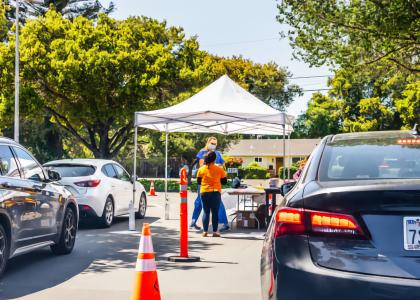Social
Digital Technology to Support Adherence to Hypertension Medications for Older Adults with Mild Cognitive Impairment

Mild cognitive impairment (MCI) is characterized by mild impairment in one or more cognitive functions and is associated with an increased risk for failure to take prescribed medications. Hypertension is prevalent among persons with MCI (PwMCI) and nonadherence to medications increases the risk of accelerated cognitive decline through cerebrovascular disease. Adherence is often only 46% or lower among PwMCI.
Tracing the Health Consequences of Family Support during the COVID-19 Pandemic

This project fills this gap in the research creating a multidimensional contextual database linked to the Health and Retirement Study (HRS) and the Panel Study of Income Dynamics (PSID) to examine the effects of the pandemic across generations of American families. The HRS and PSID have collected data on the health and well-being of individuals and their family members for decades.
Advancing Research on Mechanisms of Resilience (ARMOR): Prospective Longitudinal Study of Adaptation in New Military Recruits

The overarching goal of this study is to improve our understanding of resilience processes related to the economic, social, and personal impacts of the COVID-19 pandemic and their downstream mental health outcomes in National Guard soldiers.
Improving the Collaborative Health of Minority COVID-19 Survivor & Carepartner Dyads Through Interventions Targeting Social and Structural Health Inequities

This study tests the efficacy of a telehealth-enhanced, RN-Community Health Worker delivered dyad intervention, ICINGS FAM, on quality of life, and health-related outcomes in vulnerable African American adults with pre-existing chronic illness and their informal care partners.
A Technological Intervention to Improve Nutrition among Older Adult Congregate Meal Participants during COVID-19

This project extends existing congregate meal programming infrastructure and partnerships with Older Adults Technology Services (OATS) to provide a sustainable approach focused on older adult health.
COVID-19 Supplement to a Computational Examination of Threat and Reward Constructs in a Predominantly Low-Income, Longitudinal Sample at Increased Risk for Internalizing Disorders

This project will study how COVID-19 is impacting mental health in marginalized, low-income, minority populations. Moreover, it will document the way in which resilience factors, including social support, economic policies, and family resources, moderate the negative effect of COVID-19 related stressors on mental health.
Socio-Cultural Stress Profiles, Stress Responses, and Health in Mexican American Adolescents

This project examines ways in which the COVID-19 pandemic amplifies the socio-cultural stressors and health disparities experienced by Mexican-origin, low-income adolescents who are making the transition to young adulthood.
Intensifying Community Referrals for Health: The SINCERE Intervention to Address COVID-19 Health Disparities

The objective of this study is to determine whether community service use for those with social needs improves general and COVID-related health outcomes, and whether random assignment to intensive follow-up and collaborative goal setting helps overcome barriers to community service use.
Fragile Families and the Transition to Adulthood

This project collects new data specific to the Fragile Families and Child Wellbeing Birth Cohort Study (FFCWS) young adults’ health, wellbeing, and environments in the context of the pandemic.
Rural Southern Contexts and Pathways to Black Men's Alcohol Use and Abuse: A Ten-Year Prospective Analysis

Among rural Black men, we hypothesize that alcohol use may accelerate the spread of SARS CoV-2 settings and interactions in which they may be likely to become infected or to infect others.